Family dynamics and parents can significantly affect the mental health of a child. Exposing children to stressful family environments can cause serious mental health problems in children which can adversely affect their adult lives.
Parents, children and mental health problems
Although it can be hard to imagine that a parent may negatively affect their child’s development, family environments can often be toxic and volatile leading to constant drama and suffering. Children can feel helpless, humiliated, or even anxious due to the stressful conditions created by their parents.
Such experiences can lead to anxiety disorders, depression and posttraumatic Stress Disorder (PTSD), and other mental health problems in children. There is no doubt that parents play the most important role in shaping their children’s mental and emotional health, especially during early childhood, according to research.
Related: 14 Signs Your Child Is Struggling With Their Mental Health
How parents influence children’s mental health
Most mental health problems have their roots in childhood. Various family influences, such as attachment styles and care provided by parents, can greatly impact the early life of a child and determine their adult life pathway as well. Behavior problems, observed in around 5-10% of young children, are one of the most widely observed psychological problems in children. Such problems can lead to an array of negative outcomes, such as physical illness, psychiatric disorders, delinquent behavior, academic performance issues, and relationship problems.
According to a 2017 study by mental health therapist Rachel Ryan and colleagues, “Parenting is considered a key risk factor in the development of early psychopathology.” the researchers add “Low levels of sensitive parenting and greater use of harsh discipline have been causally linked to the development of behavioral problems,” in children. Another study found that there is strong association between family structure and the rates of children being admitted to inpatient psychiatric hospitalization. In fact, family psychiatric history and trauma increased the likelihood of readmission, found the researchers.

Recent research has identified that “parental warmth, behavioral control, and autonomy granting” help with emotional regulation in children. However, psychological & harsh control by parents is strongly associated with internalizing problems, depression, anxiety, and even suicidal ideation in adolescents. It can even make children feel alienated and isolated from their family, friends, peers, and society, leading to loneliness, introversion, and social withdrawal.
In fact, studies reveal that interparental conflict parents’ fights can also cause mental health problems in children. Moreover, negative influence from parents can also affect the child in their adult life impacting their social life, relationship with others, trust and intimacy in romantic relationships, health, and personal development. Researchers from a 2019 study “found that experiences of growing up in a dysfunctional home can result in relational issues later in life and that the need for support can persist into adult life.”
Related: Understanding The Power And Control Wheel For Child Abuse
Parental behavior & mental health problems in children
The impact of the parent-child relationship on mental health problems is determined by 3 main factors –
1. The degree of critical negativity, over-protection, or over control showed by a parent.
2. Parental modeling of anxiety.
3. How securely attached a child feels to their parents or primary caregivers.
The researchers also found that maternal behavior and parent-child interaction are also crucial determining factors in the development of childhood anxiety disorders. Moreover, maternal anxiety can directly lead to anxiety disorder in children.
1. Critical, overprotective parenting
According to a study by Jennifer L. Hudson, Ph.D., Psychology Professor and the Director of the Centre for Emotional Health, Macquarie University, “Parenting has a small but significant impact on the development of anxiety and depression in young children.” Negative parenting behaviors like overinvolved and overprotective parenting can result in avoidant behaviors in children. It can also prevent the child from approaching new experiences and opportunities and cause the development of anxiety from potentially stressful situations.
This can make the child unable to perceive and detect threats in new or fearful situations and learn how to deal with them. Moreover, when a parent is constantly critical, it can cause the development of depression and anxiety in children. By minimizing and criticizing the feelings of the child, parents weaken and cripple the child’s ability to regulate their emotions, and increase their chances of developing mental health problems.
2. Parental modelling of anxiety
Children can develop emotional health issues due to parental modeling of avoidant strategies and fearful behavior. “An anxious parent may be more likely to model anxious behavior or may provide threat and avoidant information to their child, increasing the child’s risk of anxiety disorder,” explains Jennifer L. Hudson, Ph.D. It is believed that a critical, overprotective and anxious parent can adversely affect children with inhibited temperament.
One 2011 study revealed that “a wide range of family environment factors, including maternal anxiety, parenting, and attachment was significantly associated with BI (behavioral inhibition), with inhibited children more likely to experience adverse family environment factors.”
Related: How Toxic Family Dynamics Can Cause C-PTSD In Emotionally Intense Children
3. Insecure parent-child attachment
A 1997 study has confirmed that there is a relationship between anxious/resistant parent-child attachment and the development of anxiety disorders in the child later in life. “The attachment relationship appears to play an important role in the development of anxiety disorders,” states the study. Attachment between parents and a child refers to the intimate emotional bond between the child and primary caregivers.
As there are different attachment styles, insecure attachment, as opposed to secure attachment, makes the caregiver appear unpredictable, unreliable, and uncomfortable to the child. Such type of attachment style takes place when the parent is insensitive or unresponsive to the basic physical and emotional needs of the child. “It is an insecure attachment that has been associated with anxiety and depression,” adds Jennifer L. Hudson.
Experts hypothesize that when children experience an insecure attachment, they are unable to learn appropriate emotional regulation skills or develop a strong sense of self.

Parents with mental health problems
Unfortunately, numerous children are raised by parents who are suffering from some sort of mental health problem. Most of these parents have short-term, mild, and manageable psychological issues. However, many children grow up with parents who have severe, long-term mental illnesses such as major depressive disorder (MDD), bipolar disorder, personality disorders, and schizophrenia. Moreover, a lot of parents also tend to cope with alcohol, drug, and other substance use disorders.
According to research conducted by the Center of Mental Health Services Research, Department of Psychiatry, University of Massachusetts Medical School, over 33% of women and more than 20% of men in the United States have shown signs of psychiatric disorder in the past 12 months. Among them, 65% are mothers while 52% of these men are fathers.
Another 2017 study found that around 2.7 million parents in the U.S. had a serious mental illness (SMI) and 12.8 million parents had some mental illness in the past year. Parents suffering from psychological issues often struggle with their parenting role which can not only affect their relationship with the children but also affect the children’s mental and emotional wellbeing.
Moreover, while taking care of themselves, these parents often unintentionally become unresponsive to their child’s needs resulting in an insecure attachment style.
It has been observed that children, who have parents with mental health problems, experience higher degrees of psychological, emotional and behavioral issues than other children with normal parents.
Related: Inside The Mind Of An Unloved Child
Can parents pass on mental illness to children?
One of the reasons, apart from the strained relationships and attachment patterns, could be genetic factors as mental illness often runs in families. “Offspring of parents with severe mental illness (SMI; schizophrenia, bipolar disorder, major depressive disorder) have an increased risk of developing a mental illness themselves,” explains a 2014 study.
Clinical psychologist Marcy Burstein says there is an established link between parent and child psychological problems. It has been found that children who have parents suffering from anxiety disorders tend to be 4-6 times more likely to suffer from anxiety in their life. Moreover, children of parents affected with major depression have a higher risk of suffering from depression themselves. Typically such conditions tend to develop during childhood or adolescence.
“Parental mental illness has been shown to affect attachment formation and the cognitive, emotional, social, and behavioral development of children. These children are also at increased risk of developing a psychiatric disorder in childhood, adolescence, and later adult life,” explains a 2009 research paper. Being a child with a mentally ill parent can lead to significant challenges and difficulties for the child. As children depend on their parents to meet their needs and provide care and safety, they are especially vulnerable to the mental health problems of their parents.
Moreover, as the ability of the parent to take care of the child can be decreased in such circumstances, it can also lead to high levels of stress, abuse, and trauma for the child. They are also highly likely to experience poverty and cope with the stigma associated with mental illness leading to shame and even being bullied at school.
It can also cause serious emotional health issues as the child may be constantly worried about their parent, falsely believe they are at fault and shy away from asking for help believing it may anger their parent or lead to some other negative outcomes.
For instance, studies reveal that children with parents who have depression are highly likely to experience adverse outcomes with certain risk factors, such as comorbid psychiatric disorders, marital conflict, exposure to violence, poverty, and the absence of one parent when the other is depressed.
The studies state “Depression in parents has been consistently associated with a number of behavior problems and psychopathology in children, including higher rates of depression, earlier age of onset, longer duration, greater functional impairment, higher likelihood of recurrence, higher rates of anxiety, and higher rates and levels of severity of internalizing and externalizing symptoms and disorders in children and adolescents.”
How to prevent mental health problems in children
Did you know 17.1 million children in the United States have or had suffered from a psychiatric disorder? In fact, research shows that over 22% of youth in the United States will be affected by a diagnosable psychiatric disorder with severe impairment and/or distress before they are 18. “Approximately one in every 4-5 youth in the U.S. meets criteria for a mental disorder with severe impairment across their lifetime,” explains the researchers. But, only 8% of them will receive treatment in a year.
However, there are certain factors that can help to protect children from mental health problems due to unhealthy parenting styles or when their parents are suffering from a mental disorder. “Strengthening families may be one of the most propitious ways of preventing psychological difficulties in children and their parents, as well as improving symptoms among those who already experience emotional or behavioral problems,” suggests a 2016 study. Here are some other ways to help prevent mental conditions in children:
- Changing and improving parental behavior and parenting styles by consistently showing more warmth and care towards the children, making them feel safe and secure in the family.
- Getting emotional and mental support from siblings, relatives, teachers, coaches, friends and other adults.
- Introducing another caregiver in case a parent or the primary caregiver is suffering from mental health problems.
- Getting support from local communities and agencies that will offer help to the child, the parents & other family members.
- Teaching healthy habits like adequate physical activity, nutritious diet, getting enough sleep and socializing.
- Seeking professional help can be highly recommended as a mental health professional can not only help to improve the child’s mental state, but also help the parent practice better parenting habits.
Read also: Mental Health Wellness Guide For Your Child
Overcoming mental health problems in children
There is no doubt that parents can strongly influence their children’s mental health in a variety of ways that can negatively affect their adult lives in the long run. Although it can be challenging to overcome toxic parenting habits or to deal with mental disorders in parents, seeking medical attention can help both the child and the parent equally. With the right guidance and counseling, you can build a better, healthier, and more positive life for your child and for yourself.
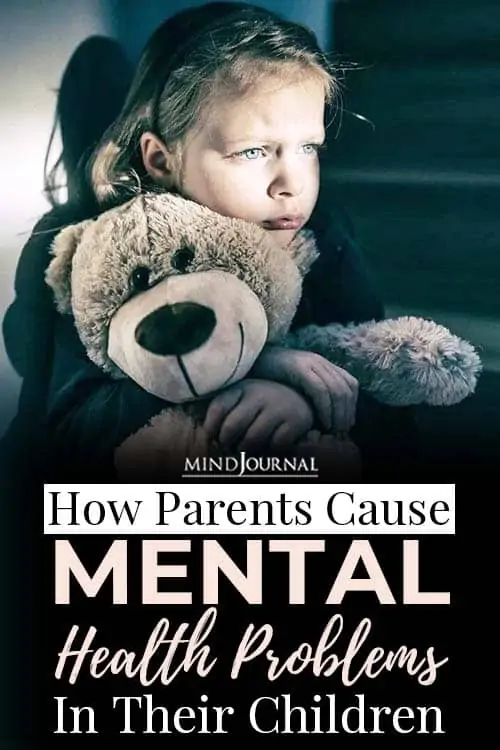
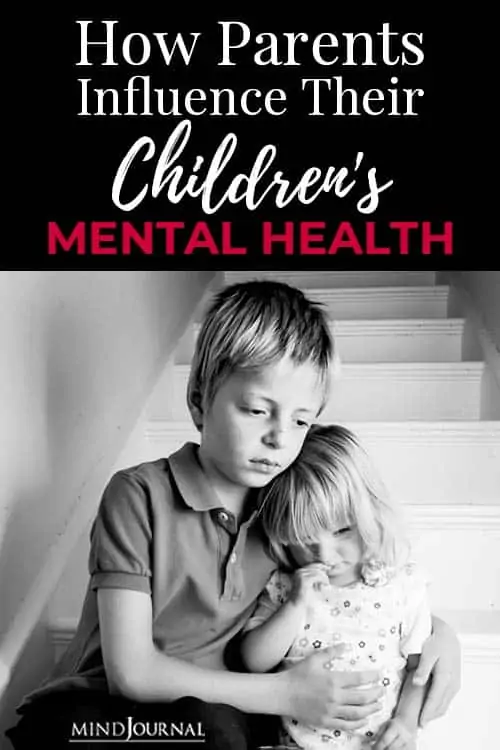
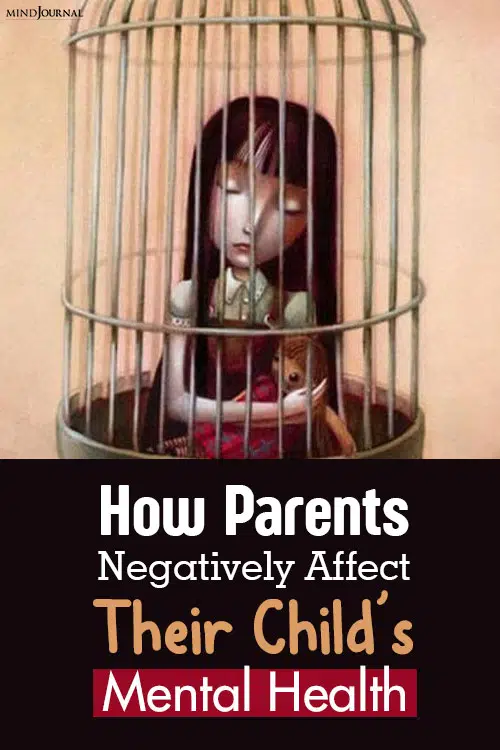
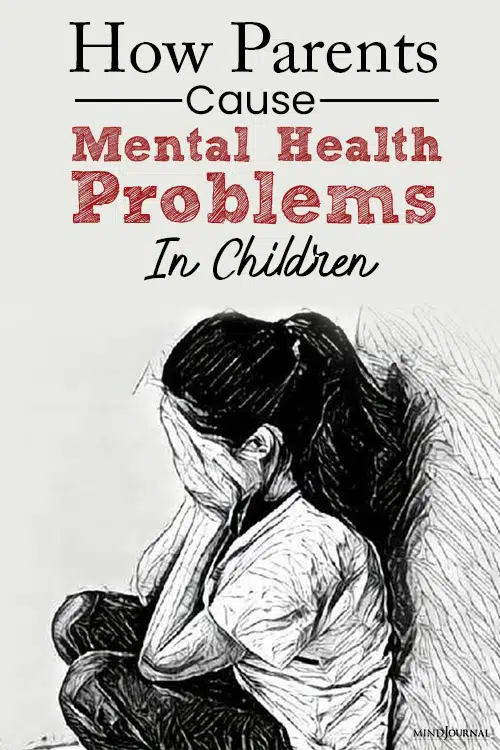
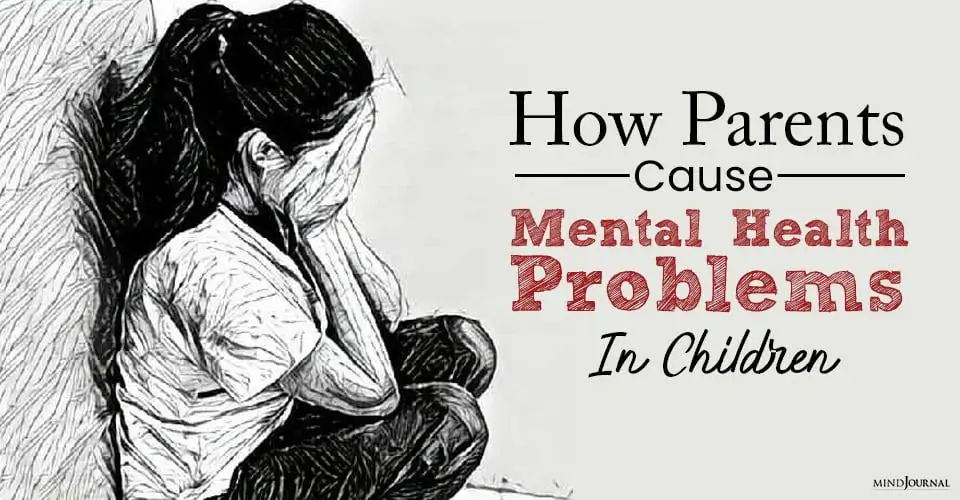







Leave a Reply
You must be logged in to post a comment.